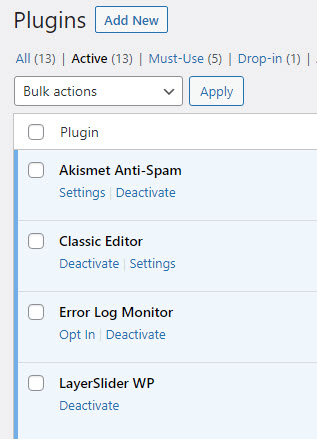Web hosting services may seem like a great mystery to a business owner, as do the associated costs. We’re here to remove the veil and tell you exactly what you should be getting from your web hosting company. Along the way, we’ll share how reputable, reliable hosting actually helps the long-term health of your website and brand.
What is Web Hosting?
Website hosting is how an individual or organization’s website is made accessible via the internet. The website is hosted on a server by a company that provides the space for the files, and maintains the website platform, or Content Management System. Every website on the internet is hosted on a server.
How Does Web Hosting Work and What Should it Include?
Maintenance Within the Content Management System
There is more to just placing a website’s files on the server and then leaving them be. Websites use a Content Management System (CMS) to display everything on the site in a structured and attractive manner, and manage who is allowed to edit the website. WordPress is a CMS, as is Wix or Drupal. A CMS allows a non-technical person to work on their website and never have to touch the code. But when you need a technical person, you really need them. A good web hosting partner will be there to help with CMS issues, updates, and questions. High quality web hosting will come with this type of support and maintenance built-in.
Knowledge of Themes, Plugins/Modules
Within the CMS is the website theme. The theme of a website is the layout, navigation, pages, colors, style, graphics, and the overall look and feel. Additionally, plugins can be added to increase functionality.
Plugins allow for specialized functionality in a website. For example, if you want calendar appointment booking functionality on your WordPress site, you would look for a plugin that provides that and upload it to your site. Uploading and testing out new plugins is best done in a development environment so that glitches do not occur on the live site. Check to ensure your hosting provider has a development environment for your site. In the Drupal CMS, special functionality is added with modules, which is the same concept as plugins in WordPress. Your web hosting partner can help recommend themes, plugins/modules, and help with upload and implementation.
Keeping on Top of Important Updates
Each theme and plugin is made by a developer, and those developers will frequently identify the need for an update or patch to their product. This is often to keep pace with changing devices and browsers, and sometimes because a security vulnerability has been identified, often by the good guys, but not always. This is why it’s very important to keep everything within your CMS up to date. A website hosting partner takes responsibility for these updates and ensures they are promptly installed.
In March 2021, a critical vulnerability was discovered in the WordPress plugin Elementor. A notice was sent to all website owners to update Elementor ASAP. A diligent hosting partner will be right on top of this. Something as simple as a plugin left in its outdated version could provide unauthorized access into your website.
Additionally, as website owners work on their site, they may find and download a plugin, and then later discover that other elements of their site are broken. Incorrect installation of a plugin, one that’s out of date and not supported, or one that conflicts with an existing plugin, can do funky things to a site. You want your web host partner on your side and ready to evaluate what’s happening with a plugin, should there be issues.
Backup and Recovery
A good hosting partner makes it easy to recover from a mistake by having scheduled backups that can be rapidly restored. This is a life saver if you tried out a big change on your site and it ended up breaking things.
PHP Version Updates
PHP is a general-purpose scripting language suited to web development. It’s used by 78.9% of all websites with a known server-side programming language. So almost eight out of every ten websites that you visit are using PHP in some way (source: W3Tech, March 2021).
Staying up to date on PHP versions is a great way to improve the speed and security of your site. A savvy web hosting company will keep the server environment, or the PHP version, up to date. Similar to WordPress or Drupal, new PHP versions are released on an ongoing basis to enhance performance and combat hackers.
WordPress Hosting Challenges
WordPress is the most popular CMS on the web today. As of May 2021, there were 28+ Million websites on WordPress. The second CMS is a very distant second: Wix at 4.5 Million sites (source: Website Setup, May 2021). However, WordPress popularity comes at a price. Being the most popular CMS means WordPress is also the most targeted by hackers. That means it’s critical to host it on a secure server and keep up with regular updates to the software.
Even WordPress has important and sometimes critical updates that arise. Your hosting company should stay on top of your WordPress core, theme, and plugin updates for you. They should be reviewing your site after an update to ensure everything looks good and nothing became glitchy in the code after the update.
Why Does Your Choice of a Web Host Matter?
Like most things in life, you get what you pay for. This is especially true of the type of hosting you choose. Think about how important your website is to your company’s online presence, brand, sales, and reputation. Consider that most consumers will visit a company’s website first, before ever purchasing something from them. When your potential customers land on your site it should be a good experience for them, a memorable one. And what they should remember is your brand and product, not the fact that the pages load painfully slow, or that the site froze. Visitors don’t hang around and give you a second chance to get things right. If they have anything less than a great experience they will simply leave and go somewhere else. The visitor’s experience on the site is highly impacted by the quality of web hosting you choose.
Additionally, we live in a world where hackers never stop looking for a way to exploit and attack websites and the data. A reputable website host won’t just host your site’s files and then sit back and forget about you. They will be continually monitoring for updates and patches needed to protect the site from security vulnerabilities.
The Benefits of Managed Hosting
There are many inexpensive hosting services out there and they tempt users with an extremely low cost to host their site. This type of hosting is called shared hosting. Let’s just say that cheap, can really mean cheap, in a lot of important ways. Here are the benefits of business class, or managed, hosting, and what makes it stand far ahead of shared hosting services.
- 99.99% site uptime. Learn the surprising facts about site uptime.
- Regular, reliable site backups
- Personalized service and support
- A reputable host is good for your SEO
- Advanced tools that help your website load quickly and reliably
- High site performance
- High site security as well as monitoring of updates and patches
- Peace of mind when relying on a responsible company
There are use cases for shared hosting; it’s sufficient for personal blogs and websites. However, if your website is representing your business and making you money, it’s appropriate to invest in managed hosting. Learn more about the differences between shared and business class hosting in this two-part blog series.
A Good Web Host Equals Peace of Mind
While many don’t know exactly what web hosting is, they do know it’s necessary. However, understanding all the nuances that come along with it and how they will affect a website, is helpful to know. Once a business owner understands the criteria of a quality hosting partner, they see the benefits of paying more for the long-term health of their website, and their peace of mind.



